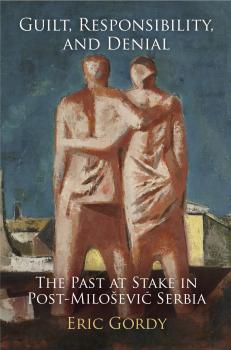ТОП просматриваемых книг сайта:
ЛИТМИР - LITMIR.BIZ - Электронная библиотека
Скачивание или чтение онлайн электронных книг.Аннотация
In the late sixteenth century, as England began to assert its integrity as a nation and English its merit as a literate tongue, vernacular writing took a turn for the eccentric. Authors such as John Lyly, Edmund Spenser, and Christopher Marlowe loudly announced their ambitions for the mother tongue—but the extremity of their stylistic innovations yielded texts that seemed hardly English at all. Critics likened Lyly's hyperembellished prose to a bejeweled «Indian,» complained that Spenser had «writ no language,» and mocked Marlowe's blank verse as a «Turkish» concoction of «big-sounding sentences» and «termes Italianate.» In its most sophisticated literary guises, the much-vaunted common tongue suddenly appeared quite foreign. In Uncommon Tongues , Catherine Nicholson locates strangeness at the paradoxical heart of sixteenth-century vernacular culture. Torn between two rival conceptions of eloquence, savvy writers and teachers labored to reconcile their country's need for a consistent, accessible mother tongue with the expectation that poetic language depart from everyday speech. That struggle, waged by pedagogical theorists and rhetoricians as well as authors we now recognize as some of the most accomplished and significant in English literary history, produced works that made the vernacular's oddities, constraints, and defects synonymous with its virtues. Such willful eccentricity, Nicholson argues, came to be seen as both the essence and antithesis of English eloquence.
Аннотация
For more than forty years, the United States has maintained a public commitment to nuclear disarmament, and every president from Ronald Reagan to Barack Obama has gradually reduced the size of America's nuclear forces. Yet even now, over two decades after the end of the Cold War, the United States maintains a huge nuclear arsenal on high alert and ready for war. The Americans, like the Russians, the Chinese, and other major nuclear powers, continue to retain a deep faith in the political and military value of nuclear force, and this belief remains enshrined at the center of U.S. defense policy regardless of the radical changes that have taken place in international politics. In No Use , national security scholar Thomas M. Nichols offers a lucid, accessible reexamination of the role of nuclear weapons and their prominence in U.S. security strategy. Nichols explains why strategies built for the Cold War have survived into the twenty-first century, and he illustrates how America's nearly unshakable belief in the utility of nuclear arms has hindered U.S. and international attempts to slow the nuclear programs of volatile regimes in North Korea and Iran. From a solid historical foundation, Nichols makes the compelling argument that to end the danger of worldwide nuclear holocaust, the United States must take the lead in abandoning unrealistic threats of nuclear force and then create a new and more stable approach to deterrence for the twenty-first century.
Информация о книге
Автор произведения Thomas M. Nichols
Жанр Прочая образовательная литература
Серия Haney Foundation Series
Аннотация
Before the twenty-first century, there was little legal precedent for the prosecution of sexual violence as a war crime. Now, international tribunals have the potential to help make sense of political violence against both men and women; they have the power to uphold victims' claims and to convict the leaders and choreographers of systematic atrocity. However, by privileging certain accounts of violence over others, tribunals more often confirm outmoded gender norms, consigning women to permanent rape victim status. In Sex and International Tribunals , Chiseche Salome Mibenge identifies the cultural assumptions behind the legal profession's claims to impartiality and universality. Focusing on the postwar tribunals in Rwanda and Sierra Leone, Mibenge mines the transcripts of local and supranational criminal trials and truth and reconciliation commissions in order to identify and closely examine legal definitions of forced marriage, sexual enslavement, and the conscription of children that overlook the gendered experiences of armed conflict beyond the mass rape of women and girls. In many cases, a single rape conviction constitutes sufficient proof that gender-based violence has been mainstreamed into the prosecution of war crimes. Drawing on anthropological research in African conflicts, and feminist theory, Mibenge challenges legal narratives that reinscribe essentialized notions of gender in the conduct and resolution of violent conflict and uncovers the suppressed testimonies of men and women who are unwilling or unable to recite the legal scripts that would elevate them to the status of victimhood recognized by an international and humanitarian audience. At a moment when international intervention in conflicts is increasingly an option, Sex and International Tribunals points the way to a more nuanced and just response from courts.
Аннотация
Challenging the traditional conception of medieval Europe as insular and even xenophobic, Shirin A. Khanmohamadi's In Light of Another's Word looks to early ethnographic writers who were surprisingly aware of their own otherness, especially when faced with the far-flung peoples and cultures they meant to describe. These authors—William of Rubruck among the Mongols, «John Mandeville» cataloguing the world's diverse wonders, Geraldus Cambrensis describing the manners of the twelfth-century Welsh, and Jean de Joinville in his account of the various Saracens encountered on the Seventh Crusade—display an uncanny ability to see and understand from the perspective of the very strangers who are their subjects. Khanmohamadi elaborates on a distinctive late medieval ethnographic poetics marked by both a profound openness to alternative perspectives and voices and a sense of the formidable threat of such openness to Europe's governing religious and cultural orthodoxies. That we can hear the voices of medieval Europe's others in these narratives in spite of such orthodoxies allows us to take full measure of the productive forces of disorientation and destabilization at work on these early ethnographic writers. Poised at the intersection of medieval studies, anthropology, and visual culture, In Light of Another's Word is an innovative departure from each, extending existing studies of medieval travel writing into the realm of poetics, of ethnographic form into the premodern realm, and of early visual culture into the realm of ethnographic encounter.
Информация о книге
Автор произведения Shirin A. Khanmohamadi
Жанр История
Серия The Middle Ages Series
Аннотация
When the regime led by Slobodan Milošević came to an end in October 2000, expectations for social transformation in Serbia and the rest of the Balkans were high. The international community declared that an era of human rights had begun, while domestic actors hoped that the conditions that had made a violent dictatorship possible could be eliminated. More than a decade after the International Criminal Tribunal for the Former Yugoslavia initiated the process of bringing violators of international humanitarian law to justice, significant legal precedents and facts have been established, yet considerable gaps in the historical record, along with denial and disagreements, continue to exist in the public memory of the Yugoslav wars. Guilt, Responsibility, and Denial sets out to trace the political, social, and moral challenges that Serbia faced from 2000 onward, offering an empirically rich and theoretically broad account of what was demanded of the country's citizens as well its political leadership—and how these challenges were alternately confronted and ignored. Eric Gordy makes extensive use of Serbian media to capture the internal debate surrounding the legacy of the country's war crimes, providing one of the first studies to examine international institutional efforts to build a set of public memories alongside domestic Serbian political reaction. By combining news accounts, courtroom transcripts, online discussions, and his own field research, Gordy explores how the conflicts and crimes that were committed under Milošević came to be understood by the people of Serbia and, more broadly, how projects of transitional justice affect the ways society faces issues of guilt and responsibility. In charting the legal, political, and cultural forces that shape public memory, Guilt, Responsibility, and Denial promises to become a standard resource for studies of Serbia as well as the workings of international and domestic justice in dealing with the aftermath of war crimes.
Аннотация
In 1966, members of the Student Nonviolent Coordinating Committee, an African American civil rights group with Southern roots, joined Cesar Chavez and the United Farm Workers union on its 250-mile march from Delano to Sacramento, California, to protest the exploitation of agricultural workers. SNCC was not the only black organization to support the UFW: later on, the NAACP, the National Urban League, the Southern Christian Leadership Conference, and the Black Panther Party backed UFW strikes and boycotts against California agribusiness throughout the late 1960s and early 1970s. To March for Others explores the reasons why black activists, who were committed to their own fight for equality during this period, crossed racial, socioeconomic, geographic, and ideological divides to align themselves with a union of predominantly Mexican American farm workers in rural California. Lauren Araiza considers the history, ideology, and political engagement of these five civil rights organizations, representing a broad spectrum of African American activism, and compares their attitudes and approaches to multiracial coalitions. Through their various relationships with the UFW, Araiza examines the dynamics of race, class, labor, and politics in twentieth-century freedom movements. The lessons in this eloquent and provocative study apply to a broader understanding of political and ethnic coalition building in the contemporary United States.
Информация о книге
Автор произведения Lauren Araiza










